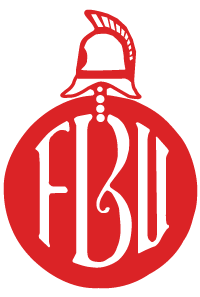Related Research Articles
In British politics, an affiliated trade union is one that is linked to the Labour Party. The party was created by the trade unions and socialist societies in 1900 as the Labour Representation Committee and the unions have retained close institutional links with it.

The Australian Council of Trade Unions (ACTU) is the largest peak body representing workers in Australia. It is a national trade union centre of 46 affiliated unions and eight trades and labour councils. The ACTU is a member of the International Trade Union Confederation.

The Fire Brigades Union (FBU) is a trade union in the United Kingdom for wholetime Firefighters, Retained Duty System and Emergency Control Room staff. It has around 44,000 members, and represents the majority of uniformed fire brigade staff in the United Kingdom.

The Canadian Labour Congress, or CLC is a national trade union centre, the central labour body in Canada to which most Canadian labour unions are affiliated.
A works council is a shop-floor organization representing workers that functions as a local/firm-level complement to trade unions but is independent of these at least in some countries. Works councils exist with different names in a variety of related forms in a number of European countries, including Britain ; Germany and Austria (Betriebsrat); Luxembourg ; the Netherlands and Flanders in Belgium (ondernemingsraad); Italy ; France ; Wallonia in Belgium, Spain and Denmark.
The Canadian Union of Public Employees is a Canadian trade union serving the public sector – although it has in recent years organized workplaces in the non-profit and para-public sector as well. CUPE is the largest union in Canada, representing some 700,000 workers in health care, education, municipalities, libraries, universities, social services, public utilities, transportation, emergency services and airlines. Over 60% of CUPE's members are women, and almost a third are part-time workers. CUPE is affiliated with the Canadian Labour Congress and is its greatest financial contributor.

The Ceramic and Allied Trades Union (CATU) was a trade union representing pottery workers in the United Kingdom.

The National Trades Union Congress (NTUC), also known as the Singapore National Trades Union Congress, is the sole national trade union centre in Singapore. NTUC is at the heart of the Labour Movement which comprises 59 affiliated trade unions, 5 affiliated trade associations, 12 social enterprises, 6 related organisations as well as a growing ecosystem of U Associates and enterprise partners. Together, it helms May Day celebrations and organises an annual rally in support of workers' solidarity and commitment to tripartite partnership.

The Police Federation of England and Wales (PFEW) is the statutory staff association for police Constables, Sergeants, Inspectors and Chief Inspectors in the 43 territorial police forces in England and Wales. Under UK labour law, the police are prohibited from joining ordinary trade unions to defend pay and working conditions, by the Police Act 1996, because of the view that a police strike would pose an exceptional public safety risk. The PFEW was originally established by the Police Act 1919 as an alternative system, which would serve to represent staff, and where disputes could be resolved through arbitration so long as the government continued to bargain in good faith.

The Transport Workers Union of Australia (TWU) is a trade union with over 90,000 members throughout Australia. It has 5 main branches in Australia

The National Postal Mail Handlers Union (NPMHU) is a progressive Labor Union representing more than 50,000 Mail Handler craft members in United States Postal Service facilities across the United States.

The police strikes of 1918 and 1919 in the United Kingdom resulted in the British government putting before Parliament its proposals for a Police Act, which established the Police Federation of England and Wales as the representative body for the police. The Act barred police from belonging to a trade union or affiliating with any other trade union body. This Act, drafted and passed into law, was passed in response to the formation of the National Union of Police and Prison Officers (NUPPO). A successful police strike in 1918 and another strike in June 1919 led to the suppression of the union by the government. On 1 August 1919, the Police Act of 1919 passed into law. Only token opposition from a minority of Labour Members of Parliament was voiced in Parliament.

The Metropolitan Water Board was founded in 1903 to bring the nine private water companies supplying water to London under a single public body. The members of the board were nominated by the various local authorities within its area of supply. A Royal Commission had reported in 1899 on the need for such controls. The board was abolished in 1974 and control transferred to the Thames Water Authority, now Thames Water.
The POA: The Professional Trades Union for Prison, Correctional and Secure Psychiatric Workers, formerly the Prison Officers' Association (POA), is a trade union is in the United Kingdom. It currently has a membership over 30,000.

The Minnesota Association of Professional Employees (MAPE) is a Minnesota-based labor union representing professional employees serving the state of Minnesota. This bargaining unit includes employees who perform a wide array of specialized, professional services from accounting to zoology. Within Minnesota, MAPE is the largest state bargaining unit with over 15,000 employees.

The Department for Professional Employees, AFL–CIO (DPE) is a semi-autonomous "trade" department of the AFL-CIO, and serves as an advocate for professional workers within the federation, and before legislative bodies, the press and the public.

The Confederation of Canadian Unions, or CCU is a national trade union center, a central labour body of independent unions in Canada.

The Irish Congress of Trade Unions, formed in 1959 by the merger of the Irish Trades Union Congress and the Congress of Irish Unions, is a national trade union centre, the umbrella organisation to which trade unions in both the Republic of Ireland and Northern Ireland affiliate.
The General Union of Loom Overlookers (GULO) was a trade union representing junior supervisors in textile manufacturing in the United Kingdom. While most members were based in Lancashire, it also had members in Yorkshire, East Anglia and Essex.

The Printing and Kindred Trades Federation (P&KTF) was a trade union federation in the United Kingdom.
References
- 1 2 3 Smethurst, John B.; Carter, Peter (June 2009). Historical Directory of Trade Unions. 6. Farnham: Ashgate Publishing. pp. 542–543. ISBN 9780754666837. LCCN 80-151653.